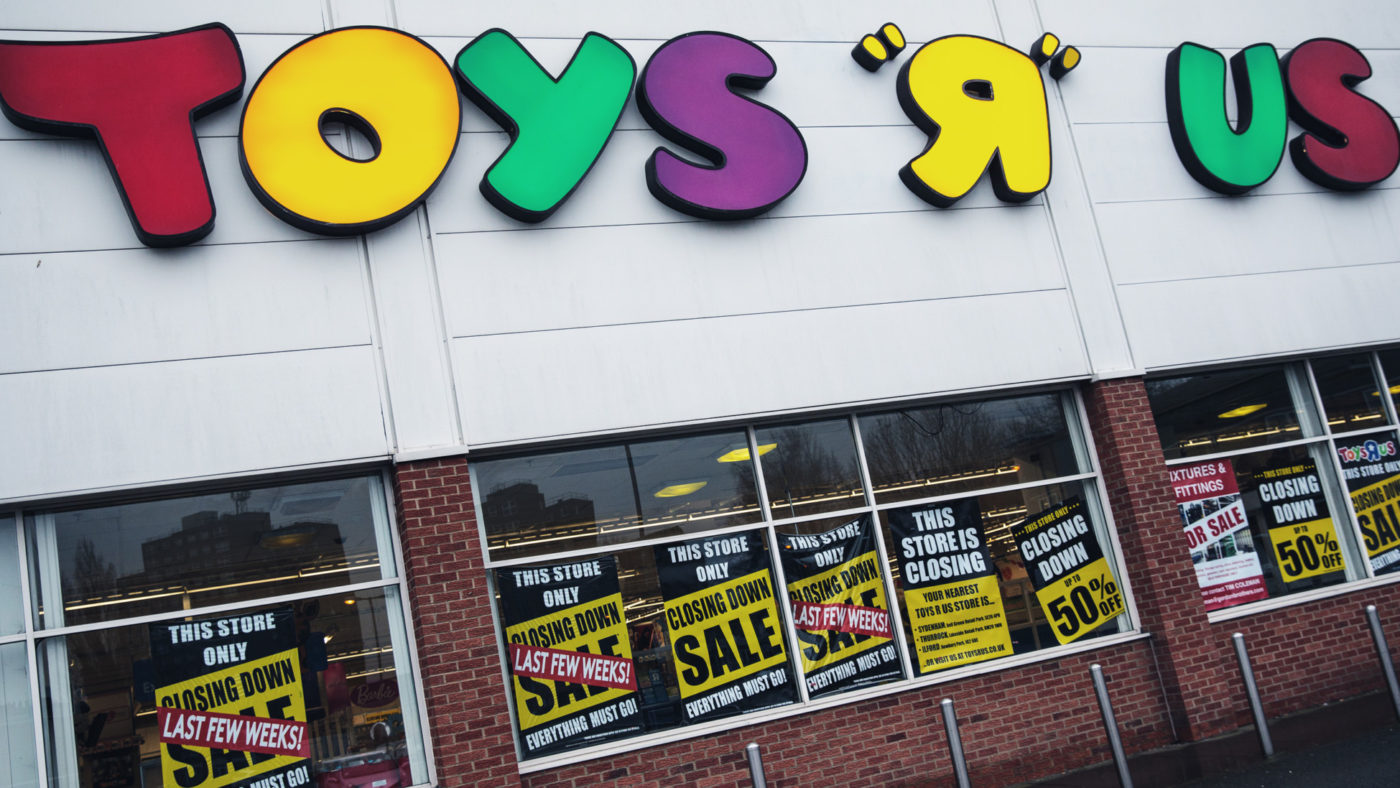To celebrate the fact that Maplin and Toys R Us have just crashed and burned might seem perverse – especially to those who will lose their jobs – but the huzzahs should still ring out across the kingdom. For this is evidence, pure and clear, that the world’s most effective form of economic system is still working. That system has been described as one of creative destruction, that being the very thing which raises us all to ever higher levels of comfort and wealth. We might not like the short term effects of the destruction, those people displaced from their jobs, but it is good evidence that the creation is taking place.
It has been said that we can see the technological revolution from computing everywhere except in the economic statistics. Yet these two failures are evidence of that very revolution. Not just Amazon, but the whole online sales revolution is changing retail. It is not a coincidence that some 12 per cent of retail sales are online today, that also some 11 or 12 per cent of physical retail space is empty. One is causing the other, to our greater benefit. That we’re not seeing this in the numbers might be because we’re not looking at the right numbers.
This system we are talking about is the rough blend of free markets and capitalism. No country or people has ever grown rich, in the absence of truly amazing amounts of natural resources, without using this system. Those places which still don’t use it are those which are still in historically abject poverty. That is because it’s the one system which not just allows, but positively encourages, the new to kill the old.
It’s the profit motive of capitalism that encourages people to experiment with new technologies. Just as with a baby exploring the world, that experimentation then matures into real uses. A real use being the production of something that people are willing to pay for. The system offers untold riches (Mr Bezos has just broken the $100 billion mark) to those who produce desirables. It is, as has been pointed out, greed which drives a part of the system.
But it’s the markets which makes sure that we consumers benefit. For if one capitalist can start to make bundles, others will invest in much the same area in order to gain some of those extra profits for themselves. That competition then brings down prices. This has quite clearly happened in retail before now. According to one calculation about Walmart, part of the last technological change in the sector, US consumers save $250 billion a year through the existence of the store chain. Not by buying from it, but because its insistence upon low prices tempers the price anyone else can charge. There’s significant evidence that Amazon (for which, again, read the online sector in general) is having much the same effect upon inflation more recently.
That’s the way that the system as a whole ensures that it’s we consumers who benefit from the advance of technology – which is exactly what we want to be happening. Greed plus competition does just that.
Yet we do still have the pesky problem of the way in which it’s very difficult to see the creative part of that process in our standard economic statistics. Measuring inflation is pretty hard anyway, without having to try and work out which new technology is dampening it. Even GDP itself is only an estimate, not an actual account. One way around this, therefore, is to look instead at the destruction.
We know why these two store chains went down. Their lunch has been eaten by the online retailers. Their empty stores are proof positive that the technological revolution is proceeding apace. Electronics, or toy, sales haven’t fallen in the economy as a whole. Retail sales themselves haven’t. So it’s not evidence of some general disaster happening, it’s a sectoral shift within the economy. Away from expensive retail methods of providing what we want, and towards less expensive online methods of delivery. That process is making us richer, as we still end up getting what we want and also have money and resources left over to have something else with.
Obviously we’d prefer to concentrate on the new and lovely things we get from capitalist free markets, and emphasise the creative part of the system. But we can see the progress equally well by considering the destruction being wrought as new methods kill off the old.
We really should celebrate retail chains closing as they fail in the face of the newer and better technologies. For that’s the very process which makes us all richer.


